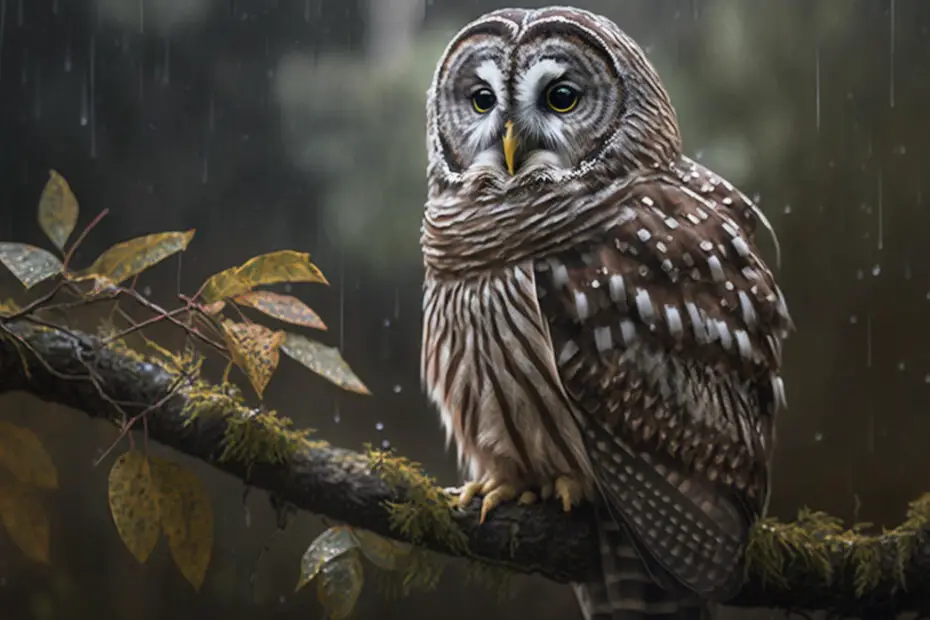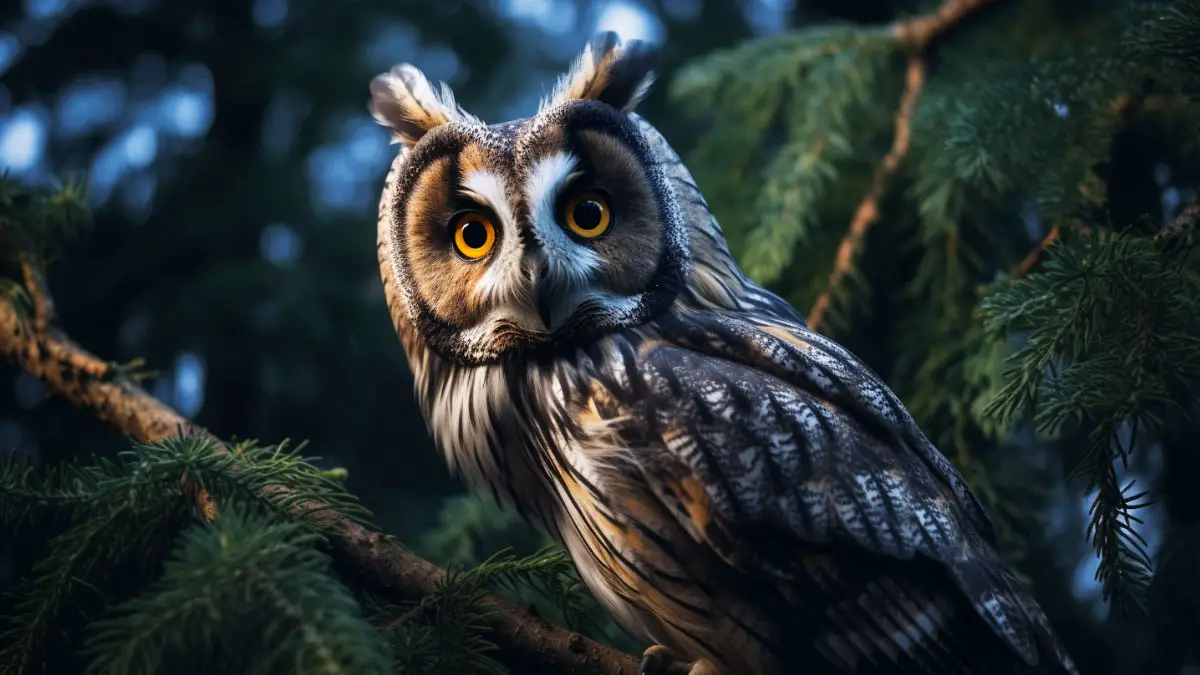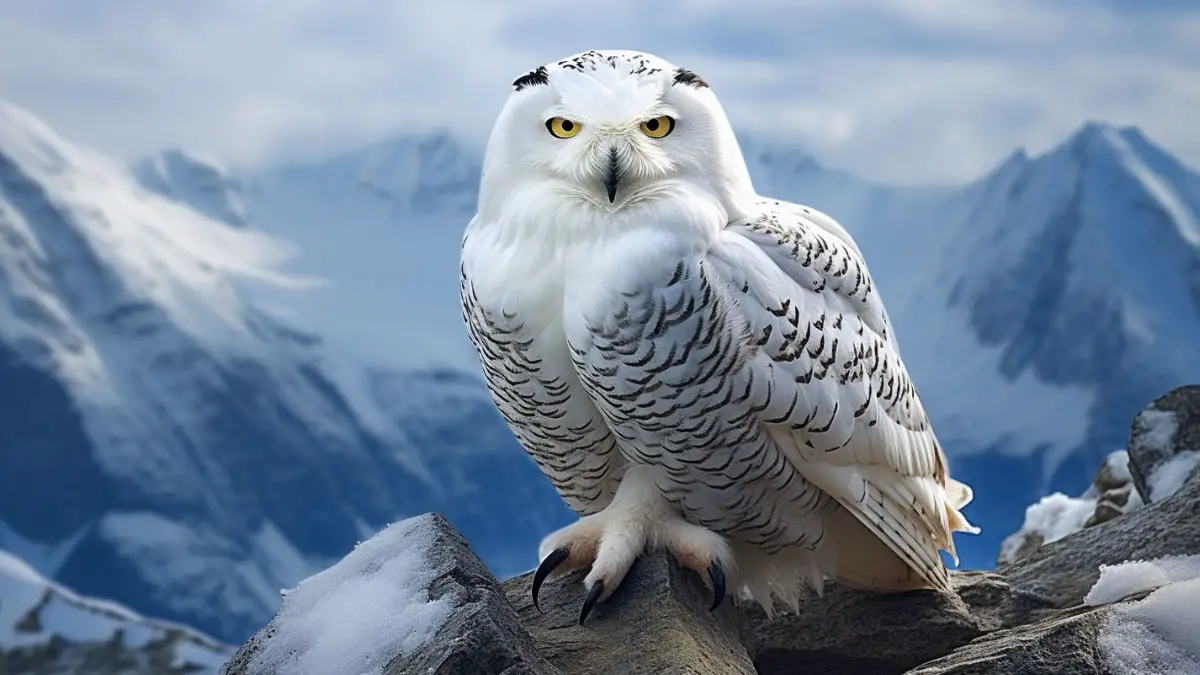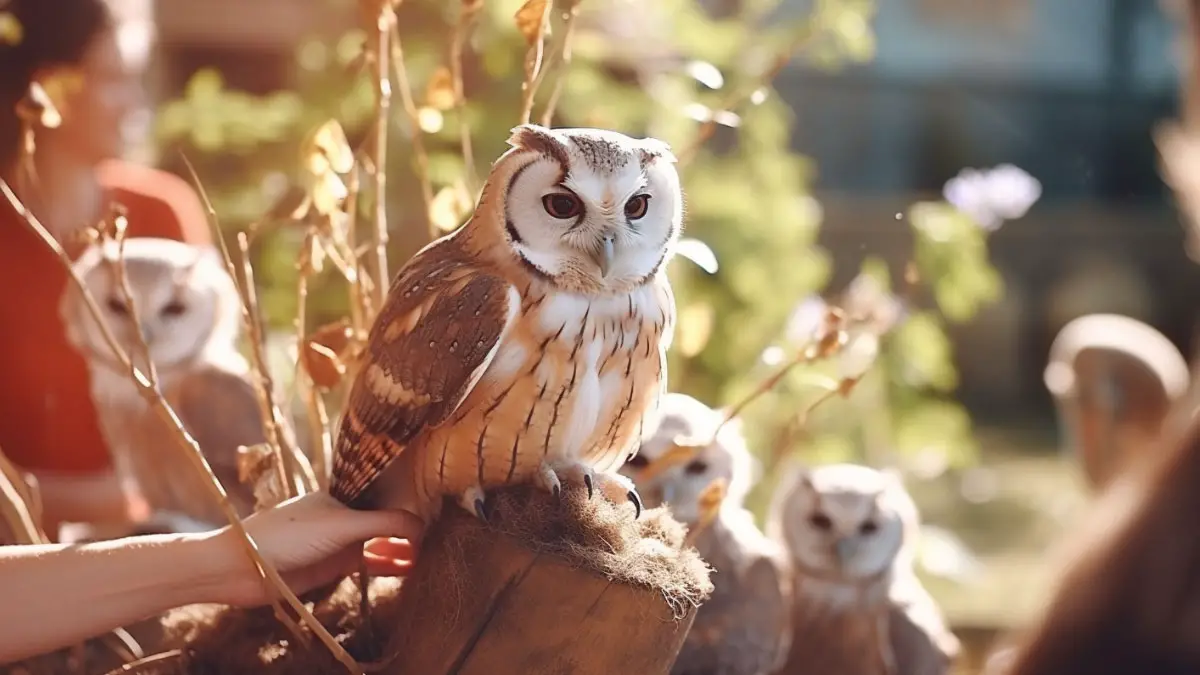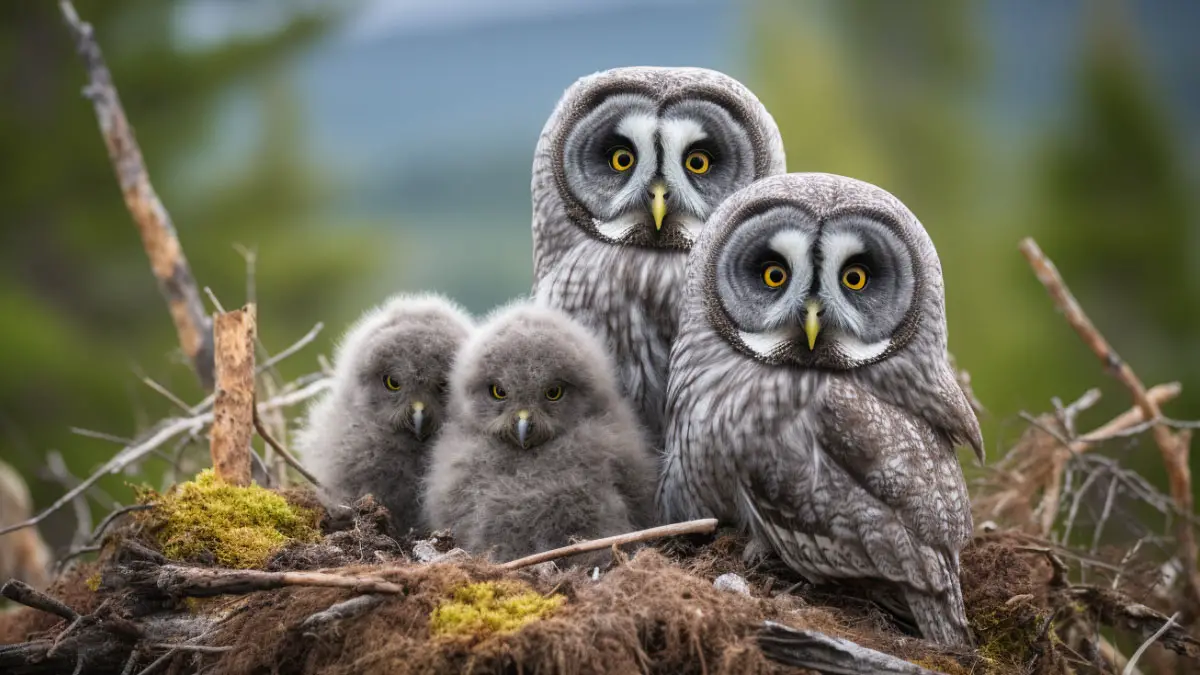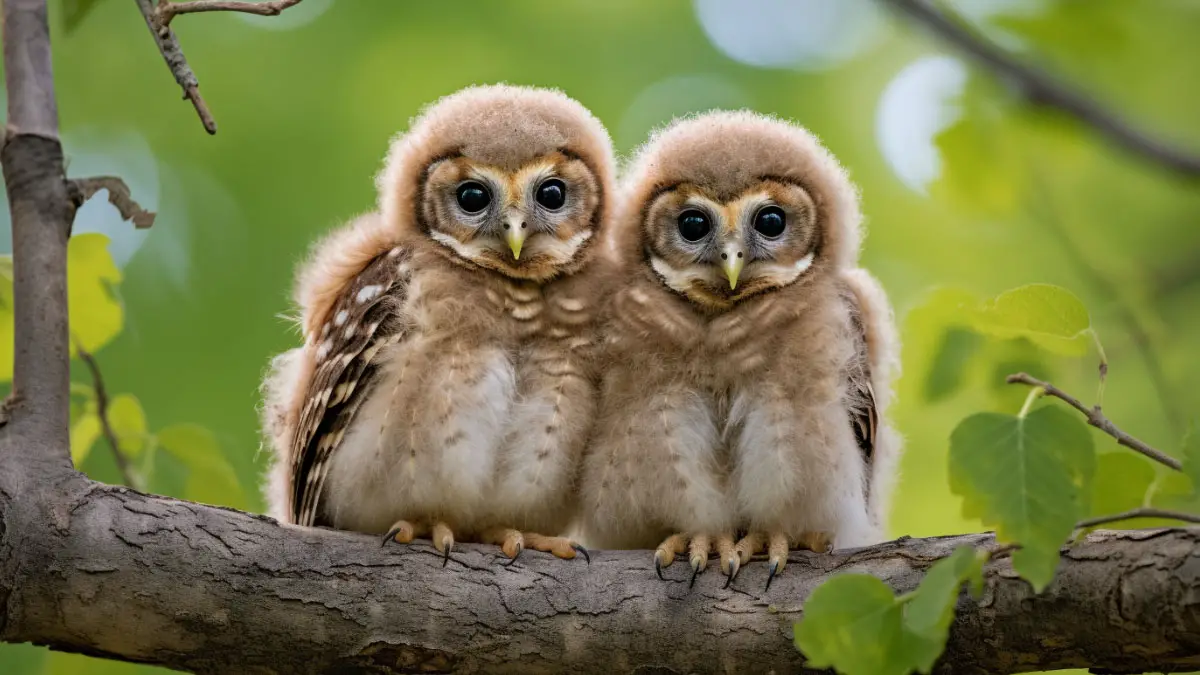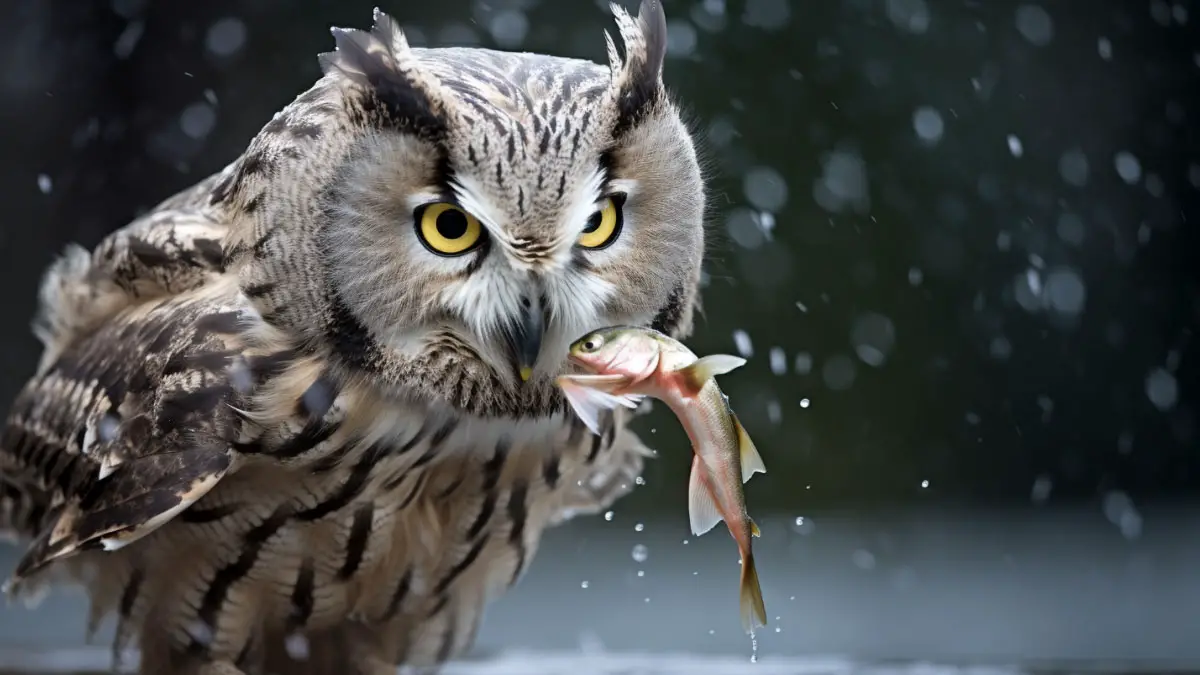Owls are fascinating creatures because of their silent wings beats and excellent vision. So it might be unusual for birds to fly in the rain but for owls it is different.
Now, you may ask, can owls fly in the rain? The answer is yes, owl in the rain can fly. Their waterproof feathers and special oil gland at the base of their tail allow them to maintain their flying ability even in wet conditions.
But that doesn’t mean it enjoys flying in the rain. Like most birds, owls have a preening behavior to help maintain their waterproofing and keep their feathers in good condition. In this article, we will jump into more in-depth details about owls and their flying behavior during rain.
Are Owls Active in the Rain?
Owls are more adaptive than you may assume in terms of damp weather. Owls can continue to fly and hunt successfully in the rain because of their waterproof feathers and unique oil gland at the base of their tail. This implies that on a rainy day, you could find a wet owl out and about actively flying.
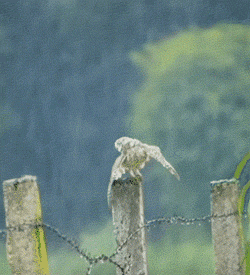
Owls are a type of bird known for their excellent flying ability and silent wing beats. This enables them to hunt effectively in a variety of conditions, such as in wet and rainy weather,
Why Do Owls Come out in the Rain?
Like all birds, owls need to eat to survive. Rainy weather can make it more difficult for owls to find food. As a result, many of their prey animals seek shelter from the wet conditions. But owls have advantages compared to other birds. It has the adaptability to come out even if it is raining.
So, overall it is food for which owls come out of the nest. However, owl activity levels might vary depending on the species and the particular weather. While other owls may be more active in heavier rain, some may prefer to hunt in dry settings.
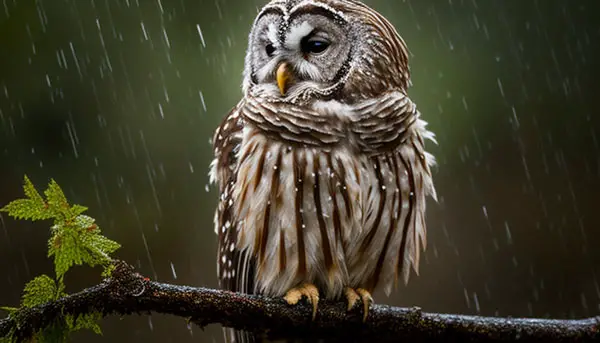
Whatever the case, it is evident that owls can adjust to moist conditions and remain active in the rain. Therefore, if you see an owl outside on a rainy day, it’s likely that it is actively looking for food, even if it means getting a little wet.
Do Owls Like To Get Wet?
Owls are incredibly adaptable to their surroundings, but they do not like to get wet in the rain. However, an owl may need to spend more time preening if it becomes very wet in order to maintain its body temperature and repair its waterproofing.
And this is crucial for an owl after rain. Especially owls that live in colder regions since being wet may have a big influence on how well they can remain warm. It is reasonable to conclude that even while owls can fly and hunt in the rain, they do not necessarily enjoy being wet.
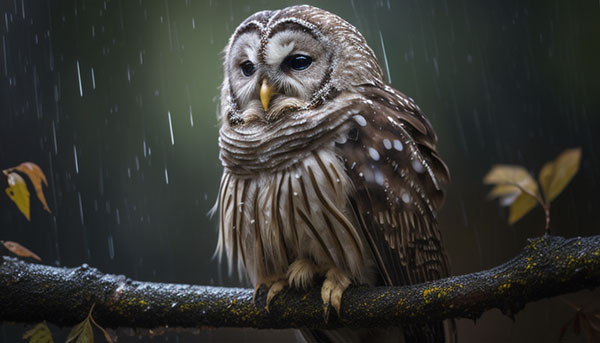
Nonetheless, they may still continue looking for food in damp and rainy situations because of their adaptation and waterproof feathers. Consequently, you may notice a wet owl out and about on a rainy day. That means it’s likely busily looking for food, even if doing so involves it getting a bit wet.
Why Do Owls Spread Their Wings in the Rain?
Have you ever seen a wet owl perched on a tree branch during a rainstorm and spread its wings wide? This action, known as “wing-drying,” allows the owl to shake off excess water from its wings and keep them waterproof. It’s like how a dog shakes off water after becoming wet.
Owl tail function is associated with a particular oil gland at the base and their waterproof feathers aid in maintaining their feathers. This allows them to fly and hunt even in damp and rainy weather.
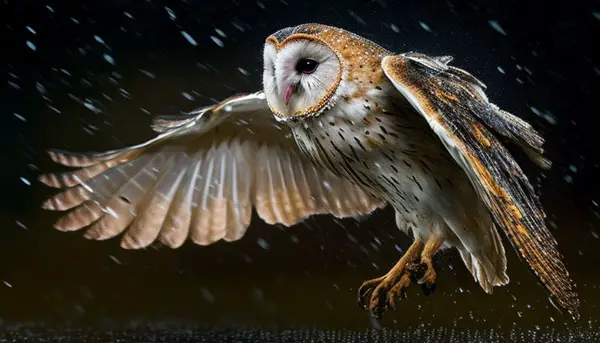
Regardless, if they are exposed to lengthy periods of rain or are immersed in water, their feathers might become wet and lose their waterproofing. When this happens, owls will engage in wing-drying behavior to shake off excess water and restore their waterproofing.
This is especially important for owls living in colder climates, as getting wet can significantly impact their ability to stay warm. Owls can maintain their body temperature by spreading their wings and shaking off excess water. Thus, they can continue to hunt effectively even in wet weather.
Owls Flying in the Rain: Two Amazing Things
While it may not be unusual to see an owl flying in the rain, there are a few things that make their ability to do so quite extraordinary. Here are two things that are unusual about an owl flying in the rain:
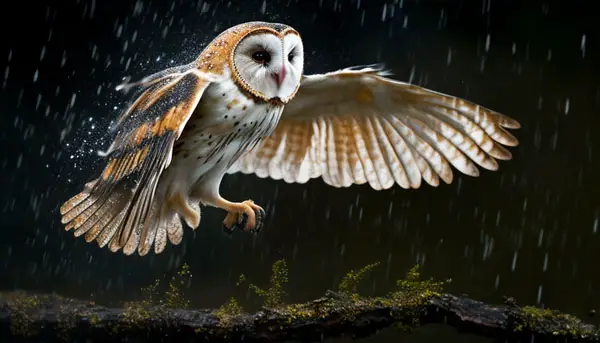
1. Silent wing beats
Owls are well-known for having quiet wing beats. These allow them to move silently through dense forests and cramped spaces without being seen by potential prey. This skill is especially helpful in rainy and rainy weather since the sound of the rain may drown out the sound of the owl’s wings.
2. Excellent vision
Owls are ideally adapted for hunting in wet weather since they have great vision and can see in low light. Their big, forward-facing eyes give them superb depth perception and the capacity to see prey animals even in low-light conditions.
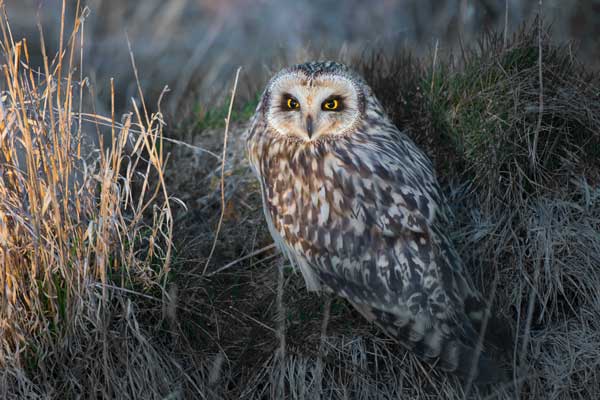
FAQs
In this part, we will try to address some of the most often-asked questions as quickly as possible.
All species of owls can fly in the rain due to their waterproof feathers and special oil gland.
Yes, owls can fly in heavy rain. But generally, it doesn’t usually come out during rain because they may lose control in heavy rain.
During heavy rain, owls may become afraid. It may lose weight by pulling its feathers in close to the body.
Conclusion
Owls are a species of bird recognized for their exceptional flying skills and quiet wing beats. These allow them to hunt efficiently in a range of environments. Even though they can hunt in these harsh conditions, owls can fly in the rain. It’s astonishing to witness a bird with such versatility.
To summarize, even though an owl can fly in the rain, it dislikes it. Wet feathers can induce sickness and other medical ailments. If one is spotted, that will come out in seeking of food.
